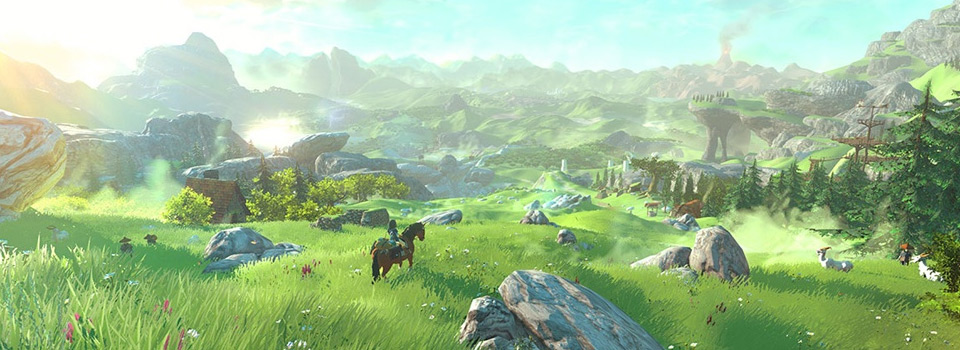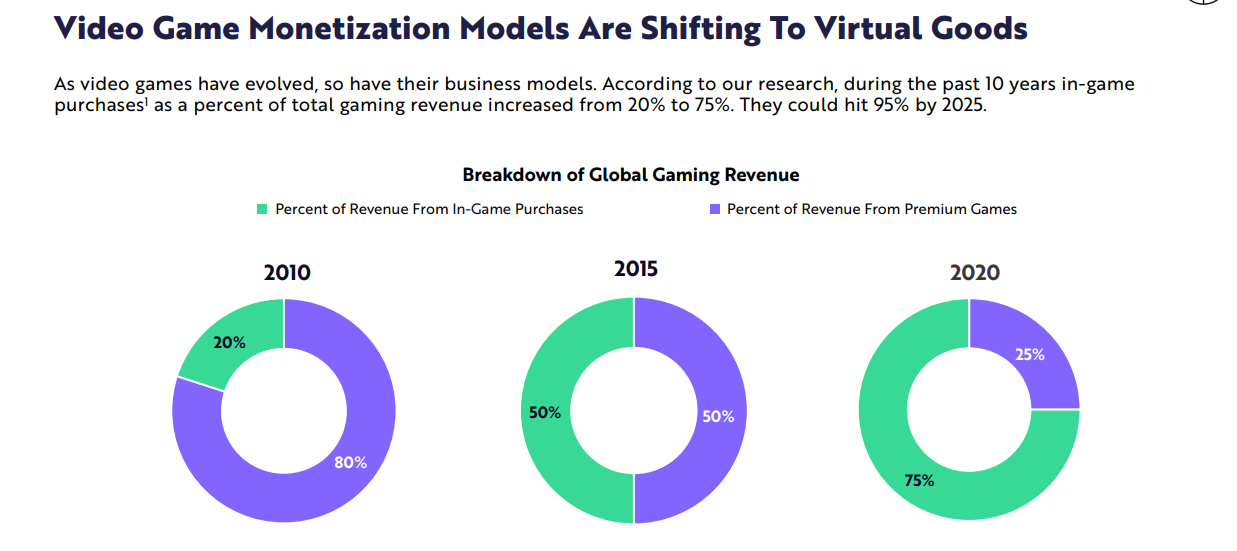The Evolving Landscape of Free-to-Play Gaming: A Look at 2025
Related Articles: The Evolving Landscape of Free-to-Play Gaming: A Look at 2025
Introduction
With enthusiasm, let’s navigate through the intriguing topic related to The Evolving Landscape of Free-to-Play Gaming: A Look at 2025. Let’s weave interesting information and offer fresh perspectives to the readers.
Table of Content
The Evolving Landscape of Free-to-Play Gaming: A Look at 2025

The realm of free-to-play gaming has undergone a dramatic transformation, transitioning from simple browser-based experiences to complex, immersive titles that rival their paid counterparts. This evolution is driven by technological advancements, shifting player preferences, and a growing understanding of monetization models. As we approach 2025, the landscape of free-to-play gaming is poised to become even more diverse and captivating, offering an array of experiences that cater to a wide spectrum of players.
The Rise of Free-to-Play: A Paradigm Shift in Gaming
The emergence of free-to-play gaming was a watershed moment in the industry. It democratized access to high-quality games, allowing individuals with limited budgets or those hesitant to commit financially to explore the world of digital entertainment. This shift was fueled by:
- Accessibility: The removal of financial barriers allowed a broader audience to participate, increasing the player base and fostering a vibrant community.
- Monetization Models: Innovative monetization strategies, such as microtransactions and in-game purchases, provided a sustainable revenue stream for developers.
- Technological Advancements: Improvements in internet infrastructure and mobile gaming technology facilitated the development and distribution of complex free-to-play games.
Defining the Free-to-Play Experience in 2025
The free-to-play model in 2025 will be characterized by:
- High Production Values: Free-to-play games are no longer limited by budget constraints. Advanced graphics, immersive sound design, and detailed environments are now commonplace.
- Engaging Gameplay: Free-to-play games prioritize gameplay mechanics that are engaging and rewarding. This includes compelling narratives, diverse gameplay loops, and robust social features.
- Fair and Transparent Monetization: While monetization remains a crucial aspect, the focus will be on fair and transparent systems that offer players choices without impacting gameplay.
- Continual Evolution: Free-to-play games are designed for long-term engagement, with developers continuously updating content and introducing new features to keep players invested.
Exploring the Diverse Genres of Free-to-Play Gaming in 2025
The free-to-play model has permeated nearly every genre, offering a wide range of experiences:
1. Massive Multiplayer Online Role-Playing Games (MMORPGs):
- Example: "Aetheria: The Eternal Realm" – A vast, open-world MMORPG with a complex crafting system, intricate social interactions, and a deep lore that spans multiple continents. Players can specialize in various roles, embark on epic quests, and forge alliances with other players to conquer challenging dungeons and raids.
2. Battle Royale Games:
- Example: "Apex Legends: Rise of the Titans" – A fast-paced, action-packed battle royale game set in a futuristic world. Players must scavenge for weapons and resources, strategically navigate the map, and outlast their opponents in a thrilling battle to be the last player standing.
3. Multiplayer Online Battle Arenas (MOBAs):
- Example: "Legends of the Nexus" – A competitive MOBA game where players choose from a diverse roster of heroes with unique abilities and strategies. Teams clash in strategic battles, pushing lanes, destroying towers, and ultimately attempting to destroy the enemy’s nexus.
4. First-Person Shooters (FPS):
- Example: "Project: Quantum" – A futuristic FPS game with a focus on fast-paced combat, strategic team play, and a variety of game modes, including deathmatch, capture the flag, and objective-based missions.
5. Strategy Games:
- Example: "Empire of the Sands" – A grand strategy game that challenges players to build and manage their own empires, navigating political intrigue, economic management, and military campaigns to become the dominant force in a vast and dynamic world.
6. Mobile Games:
- Example: "Mythical Journey: The Lost City" – A mobile RPG game that blends exploration, puzzle-solving, and turn-based combat. Players embark on a quest to uncover the secrets of a lost civilization, collecting artifacts, upgrading their characters, and battling mythical creatures.
7. Simulation Games:
- Example: "Cityscape: Urban Renewal" – A city-building simulation game that allows players to design, construct, and manage their own thriving metropolises. Players must balance economic development, infrastructure management, and citizen satisfaction to create a thriving city.
8. Sports Games:
- Example: "Global Football League" – A realistic football simulation game that allows players to manage their own football clubs, signing players, training teams, and competing in leagues and tournaments around the world.
9. Puzzle Games:
- Example: "Mindbender: The Enigma of Time" – A challenging puzzle game that tests players’ logic, spatial reasoning, and problem-solving skills. Players must navigate intricate puzzles, solve riddles, and uncover hidden secrets to progress through the game.
10. Casual Games:
- Example: "Candy Crush Saga: Infinite Adventures" – A popular casual game that combines match-3 puzzle mechanics with addictive gameplay. Players must match colorful candies to clear levels, collect rewards, and compete with friends on leaderboards.
The Importance of Free-to-Play Games in 2025
The impact of free-to-play games extends beyond entertainment. They play a crucial role in:
- Promoting Inclusivity: Free-to-play games break down barriers to entry, making gaming accessible to individuals regardless of socioeconomic background.
- Cultivating Communities: The large player bases of free-to-play games foster vibrant communities, creating spaces for players to connect, collaborate, and compete.
- Driving Innovation: The competitive nature of the free-to-play market encourages developers to constantly innovate, pushing the boundaries of gameplay and technology.
- Supporting Esports: Free-to-play games have become a cornerstone of esports, providing platforms for competitive gaming and attracting a global audience.
FAQs about Free-to-Play Games in 2025
1. Are free-to-play games truly free?
While free-to-play games do not require an upfront purchase, they often incorporate monetization mechanisms such as in-game purchases, advertising, or subscriptions. These systems can be designed to enhance the gameplay experience or provide cosmetic items, but they can also be used to create a pay-to-win advantage, which can be a concern for some players.
2. How can I ensure a fair and enjoyable free-to-play experience?
Look for games with a strong reputation for fairness and transparency. Research the game’s monetization system and consider whether it aligns with your preferences. Many free-to-play games offer a variety of options, allowing players to choose how they want to engage with the game.
3. What are the benefits of playing free-to-play games?
Free-to-play games offer several benefits, including:
- Accessibility: Free-to-play games remove financial barriers, allowing players to enjoy high-quality games without upfront costs.
- Variety: The free-to-play market offers a wide range of genres and gameplay experiences, catering to diverse tastes.
- Community: Free-to-play games often have large and active player communities, providing opportunities for socializing, collaboration, and competition.
- Regular Updates: Free-to-play games are often updated with new content, features, and events, keeping the gameplay fresh and engaging.
Tips for Enjoying Free-to-Play Games in 2025
- Research and choose games carefully: Consider your preferences, gameplay style, and the game’s monetization system before committing to a game.
- Set a budget: If you plan to make in-game purchases, set a budget and stick to it.
- Focus on the core gameplay: Don’t feel pressured to spend money to enjoy the game. Many free-to-play games offer a rewarding experience without additional purchases.
- Take advantage of free content: Many free-to-play games offer regular events, promotions, and free items.
- Join a community: Connect with other players in forums, Discord servers, or social media groups to share tips, strategies, and experiences.
Conclusion
The free-to-play gaming landscape in 2025 promises an exciting and diverse array of experiences. From massive open worlds to competitive arenas, from casual puzzle games to immersive simulations, there is something for everyone. As technology continues to evolve and player expectations rise, free-to-play games will continue to push the boundaries of what is possible in the world of digital entertainment. By understanding the nuances of the free-to-play model and approaching it with a discerning eye, players can navigate this dynamic landscape and enjoy the vast and ever-expanding world of free-to-play gaming.








Closure
Thus, we hope this article has provided valuable insights into The Evolving Landscape of Free-to-Play Gaming: A Look at 2025. We thank you for taking the time to read this article. See you in our next article!